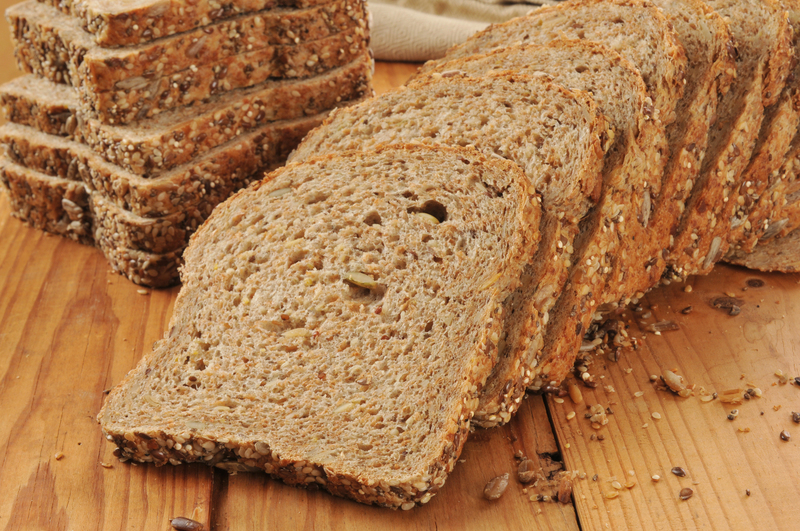Non-toxic Cleaning Alternatives
Posted on 09/10/2024
Cleaning products are essential in maintaining a tidy and hygienic living environment. However, many conventional cleaning products contain harsh chemicals that can pose serious health risks and environmental concerns. The demand for non-toxic cleaning alternatives has grown significantly as people become more aware of these issues. This article will explore various non-toxic cleaning options that are effective, affordable, and eco-friendly.
Why Choose Non-toxic Cleaning Alternatives?
Non-toxic cleaning alternatives offer numerous benefits over traditional cleaning products. Some of the key reasons to make the switch include:
1. Health Benefits: Many conventional cleaning products contain volatile organic compounds (VOCs) and other harmful chemicals that can cause respiratory issues, skin irritation, and other health problems. Non-toxic cleaners reduce the risk of these adverse effects.
2. Environmental Impact: Traditional cleaning products can contribute to air and water pollution. Non-toxic alternatives are typically biodegradable and derived from natural sources, making them less harmful to the environment.
3. Cost-Effectiveness: Many non-toxic cleaners can be made at home using simple, inexpensive ingredients. This makes them a budget-friendly option for families and individuals alike.
4. Allergen Reduction: Non-toxic cleaning products are less likely to contain fragrances and chemicals that can trigger allergic reactions, making your home safer for individuals with allergies or sensitivities.

Essential Ingredients for Non-toxic Cleaning
Many natural and everyday household items can be used to create effective non-toxic cleaning solutions. Here are some key ingredients:
1. White Vinegar:
- Properties: White vinegar is a mild acid that can dissolve mineral deposits, grease, and grime.
- Uses: It can be used to clean windows, mirrors, and countertops. It also works well as a disinfectant when diluted with water.
2. Baking Soda:
- Properties: Baking soda (sodium bicarbonate) is a gentle abrasive that helps scrub away dirt and stains.
- Uses: It is ideal for cleaning sinks, bathtubs, and ovens. Baking soda can also neutralize odors, making it a great option for deodorizing carpets and refrigerators.
3. Lemon Juice:
- Properties: Lemon juice has natural antibacterial and antifungal properties, thanks to its acidity.
- Uses: It is effective for removing stains, particularly from cutting boards. It can also be used to brighten whites in laundry and add a fresh scent to various cleaning solutions.
4. Castile Soap:
- Properties: Castile soap is a plant-based soap that is gentle yet effective at cutting through grease and grime.
- Uses: It can be used for everything from washing dishes to cleaning floors and even personal hygiene.
5. Essential Oils:
- Properties: Various essential oils, such as tea tree oil, lavender oil, and eucalyptus oil, have natural antibacterial and antifungal properties.
- Uses: They can be added to homemade cleaning solutions to enhance their effectiveness and provide a pleasant scent.
Simple Non-toxic Cleaning Recipes
Here are some easy-to-make non-toxic cleaning solutions using the ingredients mentioned above:
1. All-Purpose Cleaner
- Ingredients: 1 cup of water, 1 cup of white vinegar, 10-15 drops of essential oil (e.g., lavender, lemon).
- Instructions: Mix the ingredients in a spray bottle and shake well. Use this solution to clean countertops, sinks, and other surfaces.
2. Bathroom Cleaner:
- Ingredients: 1/2 cup of baking soda, 1/4 cup of white vinegar, 10 drops of tea tree oil.
- Instructions: Combine the ingredients in a bowl to form a paste. Apply the paste to bathroom surfaces, such as tiles and tubs, and scrub with a brush. Rinse thoroughly with water.
3. Glass Cleaner:
- Ingredients: 1 cup of water, 1 cup of white vinegar.
- Instructions: Mix the water and vinegar in a spray bottle. Spray onto glass surfaces and wipe clean with a microfiber cloth for a streak-free shine.
4. Floor Cleaner:
- Ingredients: 1 gallon of warm water, 1/4 cup of castile soap, 10 drops of essential oil (optional).
- Instructions: Mix the ingredients in a bucket. Use a mop to clean hard floors, such as tile or hardwood. For extra shine, follow up with a water rinse.
5. Natural Air Freshener:
- Ingredients: 1 cup of water, 2 tablespoons of vodka or rubbing alcohol, 10-20 drops of essential oil (e.g., lavender, lemongrass).
- Instructions: Mix the ingredients in a spray bottle. Spray in the air or on fabrics to eliminate odors and freshen up your living space.
Non-toxic Commercial Cleaning Products
If making your own cleaning solutions isn't your preference, several commercial non-toxic cleaning products are available on the market. Look for products labeled "non-toxic," "biodegradable," "plant-based," or "free of harsh chemicals." Brands like Seventh Generation, Method, and Mrs. Meyer's offer a wide range of eco-friendly cleaning products that are safe and effective.

Specialized Non-toxic Cleaning Tips
Certain areas of the home require specialized cleaning methods. Here are some non-toxic solutions for common cleaning challenges:
1. Removing Mold and Mildew:
- Solution: Mix equal parts white vinegar and water in a spray bottle. Spray the affected area and let it sit for about an hour. Scrub with a brush and rinse. For stubborn spots, apply undiluted vinegar directly.
2. Dishwasher Cleaner:
- Solution: Place a cup of white vinegar in a dishwasher-safe container on the top rack and run a hot water cycle (without dishes). This helps remove grease and odors.
3. Laundry Detergent:
- Solution: Mix 1 cup of liquid castile soap, 1 cup of washing soda, and 10-15 drops of essential oil (optional). Use 1/4 to 1/2 cup per load, depending on the size and soil level.
4. Metal Polisher:
- Solution: Combine 1 tablespoon of baking soda, 1 tablespoon of water, and a few drops of lemon juice to create a paste. Apply to metal surfaces, scrub gently, and rinse clean.
Conclusion
Switching to non-toxic cleaning alternatives is a practical and effective way to make your home safer and more environmentally friendly. Whether you choose to make your own cleaning products or purchase eco-friendly options, these methods offer a healthier alternative to traditional chemical-laden cleaners. By incorporating non-toxic cleaning practices into your routine, you can enjoy a cleaner home while protecting your health and the planet.
Latest Posts
Spring Cleaning: Wellness Starts at Home
How to Sanitise Your Coffee Maker

